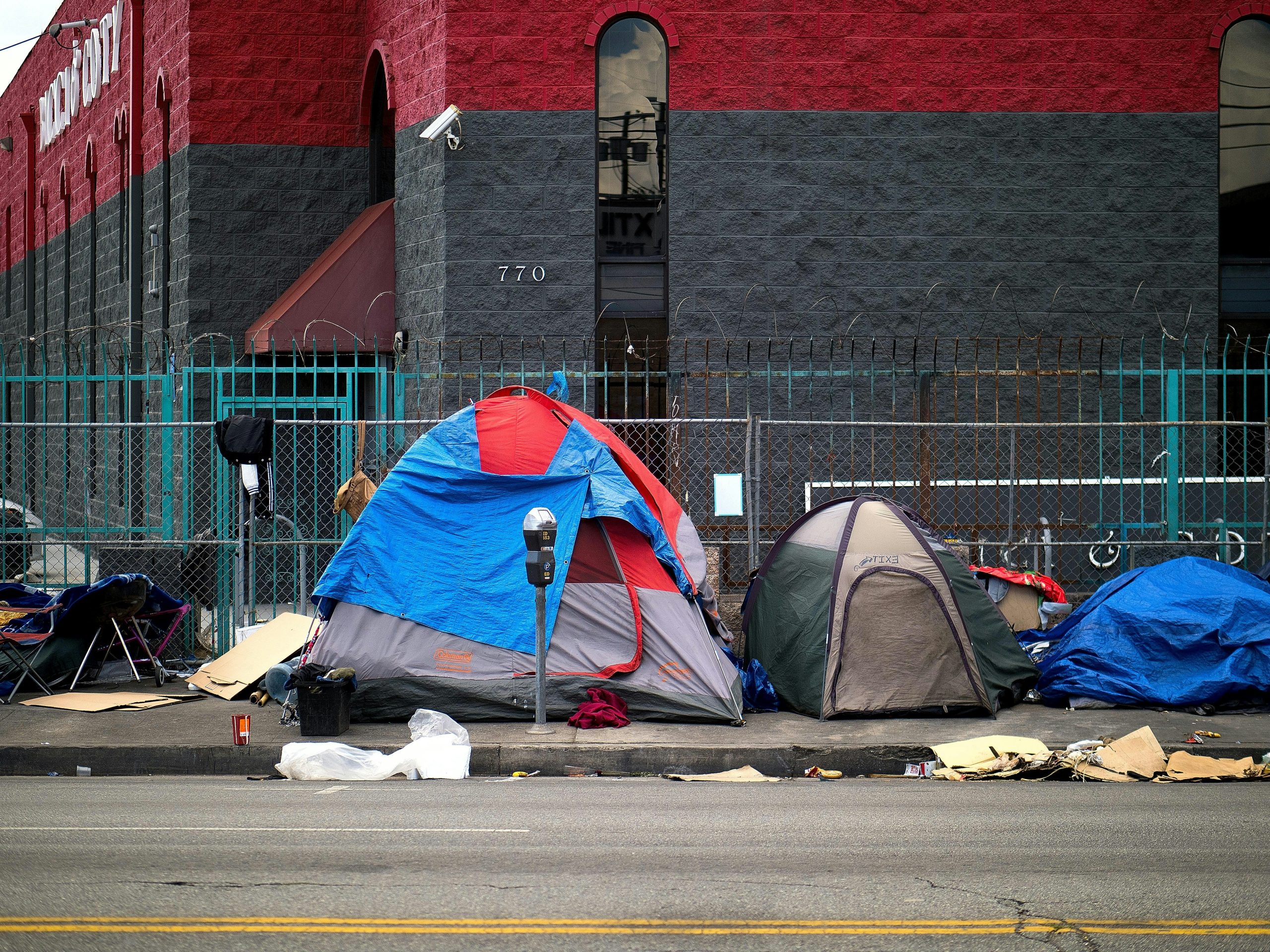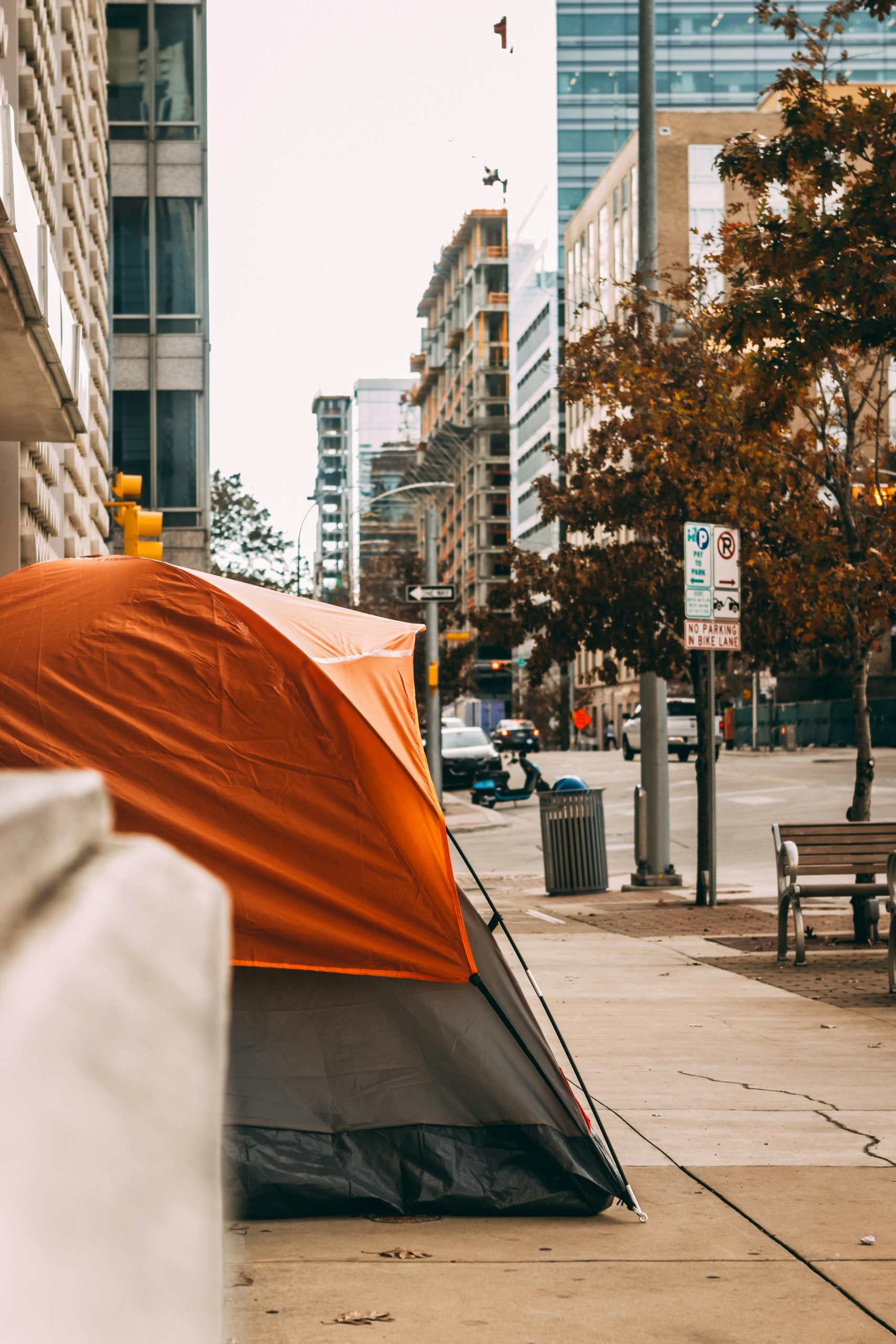Featured Guest
You’ll find this guest among our growing roll of Urban Champions.
-

Patrick Sullivan
President & CEO, Halifax Chamber of Commerce
-

Mary Moran
CEO, Calgary Economic Development
-

Mark Garner
ED, Downtown Yonge BIA
-

Karen Wong
Co-Founder & CEO, TAKU Retail
-

Bruce Katz
Co-Founder, New Localism Advisors
5 Key
Takeaways
A roundup of the most compelling ideas, themes and quotes from this candid conversation|
1. Wanted: small business ecology
If, as Jane Jacobs said, the “triumph of cities is the small,” the unfettered rise of big box stores during COVID-19 will be at the expense of local businesses and the downtowns they animate. To avoid a very long and painful recovery for local economies, a new set of tools is required, aimed at levelling the retail playing field. For example: master tenancies, new financial products and ownership models – all with protections, efficiencies and financial benefits built- in, in return for the critically important social, cultural and economic benefits they provide to the commons.
2. Back to school
Every effort is required to train the workforce for future skills, especially digital. Businesses need assistance and training on best practices. “We have so many things we need to unlearn – something as simple as handing somebody a receipt or whether or not to allow contactless tap on your pin pad,.” one panelist noted. Post-COVID, the businesses who “up” their digital game will be set up for success as they can build their existing revenue stream with supplemental, on-line income. It will also be about connectedness: “I’m not aiming to be 5G ready, I want to be 10G,” another panelist said.
3. Zoning to the rescue!
As businesses find ways to adapt to the “new normal,” planners can play a role in adapting regulations to respond to their needs. For example, expediting rezoning requests for businesses that need to shift from retail to functioning as a distribution centre.
4. It’s the cost of doing business
Most small to medium sized enterprises (SMEs) operate with little to no buffer to weather economic shocks. This is due, in large part, to the proportionally “staggering costs” that independent businesses shoulder – such as local property taxes. “We have to find a way to sustain the small independent – reduce their costs of doing business so they can put money back into the economy,” one panelist recommended. Another suggested the implementation of a program where building owners and leasees enter a profit-sharing agreement, so that fees go up as they become more successful.
5. From vacancy to vibrancy
Metrics used to assess the health of a downtown typically focus on vacancy rates. But this panel wanted to shift the focus to “vibrancy rates.” A downtown with high occupancy, but where the sidewalks roll up at 5 pm, does not make a resilient economy make. The recovery of the local economy must focus on a diversity of businesses – office, retail, entertainment, residencies and gathering places – each playing a crucial and equal role in a robust economy, and each requiring specific tools to ensure their resilience.
Additional Reading & Resources
Saving small business: emerging typologies of local relief funds, Different types of local relief funds, Bruce Katz, Colin Higgins, Michael Saadine, Florian Schalliol, Nowak Metro Finance Lab
Global Comparisons of COVID-19 response for small business
Canada’s Business Improvement Associations (BIAs) letter to the Federal Government
Full Panel
Transcript
Note to readers: This video session was transcribed using auto-transcribing software. Manual editing was undertaken in an effort to improve readability and clarity. Questions or concerns with the transcription can be directed to events@canurb.org with “transcription” in the subject line.
Full Audience
Chatroom Transcript
Note to reader: Chat comments have been edited for ease of readability. The text has not been edited for spelling or grammar. For questions or concerns, please contact events@canurb.org with “Chat Comments” in the subject line.
12:35:05 From Sue Hallatt, CUI Staff to All panelists: covidresponse@CANURB.org
12:35:23 From Emily Wall, CUI Staff: Today’s panel:
Mark Garner – https://downtownyonge.com
Bruce Katz – https://drexel.edu/nowak-lab/
Mary Moran – https://calgaryeconomicdevelopment.com
Patrick Sullivan – https://halifaxchamber.com
Karen Wong – https://takulabs.io
12:37:11 From Richard DiFrancesco: Good afternoon everyone
12:37:45 From paul mackinnon to All panelists: Hello from Downtown Halifax – paul mackinnon
12:37:51 From John Jung: What are some of the best practices currently?
12:39:29 From paul mackinnon to All panelists: would love to have a conversation about what the future of main streets look like post-covid. How do we help businesses survive, and how to we rebuild them?
12:40:21 From paul mackinnon: would love to have a conversation about what the future of main streets look like post-covid. How do we help businesses survive, and how to we rebuild them?
12:41:52 From paul mackinnon: Canadian cities can’t give $$ directly to businesses. Any programs whereby local gov’t has been able to get around this (ie, using arms-length orgs)?
12:43:08 From Rick Allwright: Hey Paul, I have an example of this in Yarmouth NS. Not specifically for this crisis but for our downtown facade improvement.
12:43:51 From Courtney Kishbaugh to All panelists: Paul, here is Bruce’s piece that goes through different types of local relief funds: https://drexel.edu/nowak-lab/publications/reports/Covid-Emergency-Fund-Typologies/
12:44:07 From Courtney Kishbaugh: Paul, here is Bruce’s piece that goes through different types of local relief funds: https://drexel.edu/nowak-lab/publications/reports/Covid-Emergency-Fund-Typologies/
12:44:27 From Aphrodite Bouikidis: There are many countries where cities cannot give money directly to businesses, just to add a global-minded reminder.
12:45:14 From Gillian Mason: Agree with Bruce that we will have to think hard to build into our future systems, the connections to the mainstream that will enable micro businesses, the backbone of many Toronto neighbourhoods, to access the many supports and services that are inaccessible to them (and them to us).
12:46:40 From Diane Dyson to All panelists: Cities do fund non-profits through grants and purchase-of-service.
12:47:17 From Anil Patel: Here are some resources that might be of interest from the www.SaveSmallBusiness.ca community. Global Comparisons of COVID-19 response for small business: https://bit.ly/SSB-COVID19-Country-Response-Comparison
12:47:46 From Audrey Jamal: In Ontario, the use of a Community Improvement Plan (CIP) has been used to provide funds for facade improvements in downtowns. There are also CIPs specific to brownfield remediation. Curious for a MAH perspective on how/if CIPs can b e used in this context to support small businesses in downtowns: https://www.mah.gov.on.ca/AssetFactory.aspx?did=7032
12:48:10 From Aphrodite Bouikidis: Q: What are your views on more cooperative, democratic forms of business ownership and local economic activity? They are showing more resilience to crises (see an ILO 2009 report, for example). Economic resilience needs more attention, what are we doing in this area? (Thank you for your time in this discussion!)
12:48:46 From paul mackinnon: Has there been any Federal-level modelling – the cost of saving main street now vs the cost of letting mass amounts of businesses die? Is the lack of support perhaps intentional? Is it just too expensive? Or do we need to advocate more effectively?
12:50:25 From Milton Friesen to All panelists: Are there any early indicators (I realize we are adapting on the fly) of what we must or must not do – the early responses that are most instructive in responding a street and local levels?
12:54:00 From Aphrodite Bouikidis: How have the Chambers and leading businesses/industries worked with governments on emergency preparedness and risk reduction? How might they work on this in the future?
12:54:57 From Gillian Mason: City of Toronto was already investing in developing community-led neighbourhood-based resilience strategies (active modes: prepare, respond, recover, regroup and mitigate) which local communities are “testing” right now. Will be excellent lessons from this.
12:55:01 From Charles Finley to All panelists: Small business and entrepreneurs are so key to the identity, resilience and prosperity of neighbourhoods as well a commercial cores of large and small communities. Financial supports are essential but what tools can municipalities provide to assist small business – including ramps to ecommerce, perhaps in a local cooperative model, building better provisions for small businesses into zoning and parking restrictions that favour chains and larger companies.
12:55:47 From Salima Rawji to All panelists: Karen thank you for raising the land use issues. Would love to hear more from the panelists on this issue.
12:56:33 From Aphrodite Bouikidis: Thanks, Gillian.
12:58:12 From John Jung: Maybe increase the universal basic income distribution to move cash at the local level?
13:00:08 From paul mackinnon to All panelists: Link to the letter Canada’s BIAs have sent to the Fed government:https://downtown.org/wp-content/uploads/2020/04/IDACanada_PMLetter_COVIDPrograms.pdf
13:00:10 From Brian Owen: But not through Credit Unions?
13:01:10 From Canadian Urban Institute: Folks, please be aware that your chat settings may mean you are only sending comments to panelists. Other attendees would also love to see your comments so please change your settings to “All panelists and attendees”. There is a drop-down menu next to To: where you can change this setting.
13:01:54 From paul mackinnon: Sharing link to letter the BIAs of Canada have sent to the PM, advocating for a main street program:
13:02:03 From paul mackinnon: https://downtown.org/wp-content/uploads/2020/04/IDACanada_PMLetter_COVIDPrograms.pdf
13:02:57 From Diane Dyson: Cities also fund non-profits through grants, tax rebates, and purchase-of-service.
13:03:20 From Brian Owen: Does the $40,000 loan have a requirement of $50,000 payroll? Did I hear incorrectly?
13:05:16 From Emily Harris: What cross-Can data do we need about city impacts? Most of the breakdowns I see are by province
13:05:51 From Emily Harris: What can StatsCan do
13:06:45 From John Jung: In this new normal are there some digital examples of how communities could generate new income?
13:07:00 From Mark Richardson: Yes, LOAN program has a Payroll requirement…
13:07:04 From Leticia Chapa: Does a post-covid urban realm mean that mostly big box stores survive? They are the only ones who can absorb this financial shock. Will this make us more dependent on smart centres we have to drive to?
13:07:10 From Alan McNair: The government needs to move towards a guaranteed universal minimum income for all Canadians. This may be the best way to recreate citizen confidence in the economy going forward. The confidence that they will have money to feed, clothe and shelter their families and deal with healthcare issues beyond basic medical care will allow citizens to consider making other purchases, which will then support the local businesses which have been so hard hit by COVID 19.
13:07:27 From Dina Graser: Organizations like Digital Main Street are working in this area.
13:08:03 From John Jung: Use of broadband and advanced technologies should be leveraged to innovate new forms of revenue generation and spending. Any examples or ideas that could reflect this?
13:08:55 From John Jung: we also need a reimagining stage
13:09:02 From Mark Richardson: Details on the ‘Canada Emergency Business Account’
https://www.cibc.com/en/business/covid-19/emergency-business-account-faq.html
13:09:04 From Brian Owen: The actual organization that presents SXSW in Austin may actually collapse, let alone the economic impact. This is true with many international conferences, where the org. is funded by the proceeds of the major annual event. Of course, the loss of econ. impact is devastating to the cities in every instance.
13:09:37 From Gillian Mason: There is a 69% point differential between those at the high end and those at the low end of the literacy spectrum (think literacy proficiency) in their digital skills; and up to 40% of the population in every province do not have the literacy skills to become proficient in digital literacy.
13:09:52 From Anna Linden-Fraser to All panelists: In a respond / rebuild world where more businesses are online, what are the impacts on transit systems – which will no doubt already be suffering from people being afraid of taking transit
13:10:16 From LoriAnn Girvan to All panelists: is there any work being done on insurance- payments or not of interruption as well as if the industry will turn its back on small business and add to future costs by out of reach premiums and more complex liability issues?
13:10:25 From kendall christiansen: FYI – the CEO of SXSW was interviewed in Sunday’s NYTimes business section re it survival strategy/prospects
13:10:36 From Sarah Davies: The org I work for is small – less than 250k per year. One of our biggest earners is a conference that we hold in early Oct. If we can’t do that this year…. Add to that our funding from the gov’t may be reduced this year and it could create a huge problem.
13:10:54 From Gillian Mason: Karen is right: we have the capacity to upgrade the literacy levels of Canadians that we have not yet seized … here is a significant recovery opportunity.
13:11:06 From Abhilash Kantamneni: Seems like Mayors around the country are striking advisory ‘task forces’ to provide local input on react/recover/rebuild efforts. Are there any ongoing efforts to coordinate learning across these emerging groups?
13:12:44 From Gillian Mason: In Toronto, we have seen place-based workforce development strategies provide a geographic solution for a geographic problem
13:13:24 From John Jung: Reality is that we will come out of it but may be 1.5 to 2 years. Will be face to face again, but need to leverage digital opportunities now and take the time and effort to learn new things in a digital world.
13:13:38 From LoriAnn Girvan: where is the insurance industry with supporting business interruption. will we see exclusions that could effectively shut small business owners out of coverage in future?
13:13:44 From Milton Friesen: Karen, great question about how the digital (well in motion before Covid) may displace or make redundant built/physical space? Rural to urban shifts provide clues about over-run on physical space when people migrate to cities.
13:14:41 From John Jung: We need real leadership at this stage to move new ideas forward. Where are they? Best practices?
13:15:01 From Adrian Nandez to All panelists: @Mary Moran, would you be able to share more details of CED’s initiatives to retool SMEs with digitization capacity?
13:16:10 From Charles Finley: As time goes on we should differentiate the survival initiatives from bridging ones as we move back to an interim state,, to long term infrastructure supports and initiatives that will enable a future hybrid/physical economy and way of living that will never be exactly as it was before but will have elements of that past.
13:16:13 From Albert Wong: Can we have a COVID bond system at a local neighbourhood level instead of a national level? Would this have a better effect at the local level?
13:16:17 From Sonja Miokovic: I’m fascinated by the effects on the entire supply chain and the impacts on local agriculture due to the restaurant closures and zero tourists.
13:17:16 From Brian Owen: The issue of business digitization to an online presence and possibly replacing bricks & mortar is a major concern. This is so true with all major convention centres once events realize that they can take the event online and some have done this quite well. already. EcDev created centric to facilities such as Toronto’s MTCC, Congress Centre, Int. Cent and on the international scale such as Javits, McCormick, and Las Vegas CC will be devastated.
13:17:42 From Charles Finley: It is a terrific question – what would Jane Jacobs say…digital enables local business to operate at scale, but that scale can overshadow the uniqueness of a diverse set of small, independent products and experiences.
13:17:45 From Sonja Miokovic: I heard a stat that 3/4 of Canadian potatoes are sold to restaurants….
13:17:56 From Diane Dyson: Except who wants to line up at a Big Box? Physical distancing could as easily be an argument for micro-local dispersed retail.
13:18:12 From Sarah Davies: Will certification training programs get a boost as a result?
13:18:18 From John Jung: Local enforcement on spatial distancing, new zoning procedures, etc need to be addressed now by our urban planners. Are we hearing anything in these areas to help in urban design to aid retail survival and growth?
13:19:15 From Sarah Davies: And will it also increase a situation where for-profit schools can increase their appeal (and predatory practices) as people feel they need to be retrained but aren’t sure where to start?
13:19:24 From Beate Bowron: perhaps the mandate of our existing BIAs can be expanded to begin a cooperative re-vitalization of our retail strips/main streets
13:20:00 From Dina Graser: What are the most effective digital skills retraining initiatives out there? There are a million players in this space, but not clear who’s really doing it well.
13:20:38 From John Stapleton to All panelists: with higher inequality (for the rich – isolation deficit for the poor) how does this plsy itself out in local economies and the public square,
13:21:01 From Devon Franklin to All panelists: @Mary, will share the contact information of panelists? I’d be interested in following-up with Mary and Karen directly.
13:21:35 From John Stapleton to All panelists: isolation dividend for the better off and isolation deficit for the poor – sorry my question was unclear.
13:21:44 From Sue Hallatt, CUI Staff: Today’s panel:
Mark Garner – https://downtownyonge.com
Bruce Katz – https://drexel.edu/nowak-lab/
Mary Moran – https://calgaryeconomicdevelopment.com
Patrick Sullivan – https://halifaxchamber.com
Karen Wong – https://takulabs.io
13:21:49 From Marc Paquet to All panelists: A lot of people fear new technologies. jus
13:22:33 From Paul Bedford: Digital Main Street, that was developed by TABIA, the Toronto Association of BIA’s, was expanded by the Province throughout Ontario through OBIAA, is the best program to take this on. There is already some momentum to take this across Canada.
13:23:16 From Laurel Davies Snyder to All panelists: All 5 City of London BIAs used Digital Main Street. Great potential with this program.
13:24:24 From Franc D’Ambrosio to All panelists: Instead of reasserting mass consumerism, the full force of advertising psychology should be harnessed to repair and recover the damage to peoples’ confidence in transit, shopping streets and other city public functions that is occurring now.
13:25:23 From Marc Paquet to All panelists: tracking people for covid-19 is considered a treat for some persons. But it is a good solution to save our businesses.
13:25:55 From Canadian Urban Institute to All panelists: Panelists: If you’d like to stay on and engage with the chat (which will carry on after the webinar), just stay on and I will hide your video.
13:26:06 From Alexandra Flynn: Do you think the structure and powers of BIAs are sufficient to guide local businesses through this transition – or will changes me needed (e.g. prov bodies rather than city; more revenue power)
13:27:26 From Dina Graser: Social, local and diverse procurement can play a role.
13:27:48 From LoriAnn Girvan to All panelists: COVID-19 ‘lemonade’ must include fixing the highest and best use tax system!
13:27:49 From Diane Dyson: The Quebec government is currently running a Buy Local When You Buy Online campaign.
13:28:05 From Paul Bedford: The City’s BIA Office (Economic Development) will need to come up with a Recovery/Mitigation program like they did with the Crosstown Construction grants that were made available to the Eglinton BIA’s.
13:29:13 From David Katz to All panelists: There is so much wasted energy that we have the technology to recover but we need a new way of looking at life cycle costs and make jobs.
13:29:35 From Gillian Mason: Re Infrastructure investment: We will need excellent systems for preparing people for the building trades, of which there are some examples in Toronto.
13:31:01 From Gillian Mason: Thank you to everyone. Great conversation.
13:31:25 From John Jung: Thanks everyone.
13:31:30 From Geoff Garbutt to All panelists: Thanks for the discussion
13:31:30 From Mohsin Kamal to All panelists: thank you for the engaging conversation, loved Marks point about the use of space!
13:31:47 From Francis Gentoral: Thank you for all the good ideas
13:31:56 From Allan Kean: Thanks everyone. Amazing discussion.
13:32:02 From Salima Rawji: thank you for the conversation!
13:32:11 From Alexandra Flynn: Thank you so much!
13:32:11 From Yvette Jancso: Thank you everyone !
13:32:12 From Monika Rau: Thank you!
13:32:12 From Keisha St. Louis-McBurnie: Thanks all.
13:32:15 From Rick Allwright: Please send the recording out to those registered
13:32:15 From Geoff Garbutt: Stay safe and take care
13:32:21 From Albert Wong: Thank you
13:32:39 From Joanna Crispe to All panelists: Thank you!
13:32:42 From Sara Udow to All panelists: Thank you!
13:32:45 From James Haga to All panelists: Thanks a lot!
13:33:56 From Sue Hallatt, CUI Staff: A recording of this session will be posted at CANURB.ORG/citytalk
13:33:56 From Afie Mardukhi to All panelists: thank you very much, great conversation. Need to include not for profit and service industry in the moving forward strategies.
13:35:01 From Diane Dyson: I was intrigued by the suggestion of profit-sharing between lessees and lessors. We did a version of that in the DECADE pop-up shop community renewal project with landlords who had vacant storefronts. Great talk and chat. Thanks!
13:36:42 From Mohsin Kamal to All panelists: I work for Share the Road Cycling Coalition, following up on Mark’s point about the use of space, if someone could actually weigh-in on the benefits of closing streets to cars for a more mixed-use approach as planning evolves in cities during and post pandemic, will that benefit local businesses in terms of foot traffic?
13:37:33 From Abbe Edelson: Great talk and chat! Coordinating best practices for supporting local economies and developing innovating financing models is key so that post-Covid we are not reproducing the inequities that existed before.
13:44:32 From Canadian Urban Institute: Seems the chat as died down so we’ll close it in 2 minutes if anyone would like to add anything.



